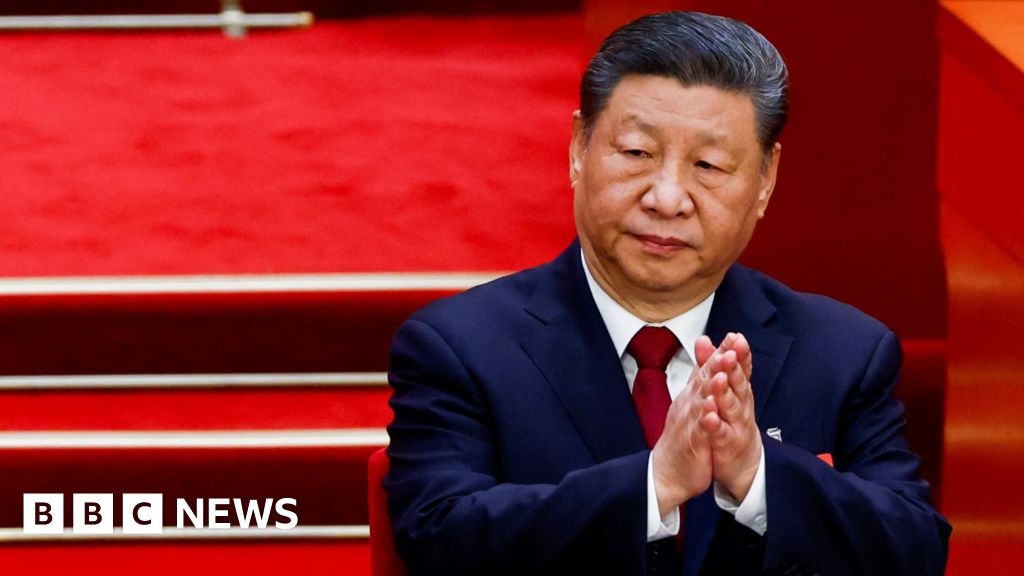China says it is ready for any type of war with US
- BBC News
China has warned the US it is ready to fight "any type" of war after hitting back against President Donald Trumps mounting trade tariffs.
The worlds top two economies have edged closer to a trade war after Trump slapped more tariffs on all Chinese goods. China quickly retaliated imposing 10-15% tariffs on US farm products.
"If war is what the US wants, be it a tariff war, a trade war or any other type of war, were ready to fight till the end," Chinas embassy said on X, reposting a line from a government statement on Tuesday.
It is some of the strongest rhetoric so far from China since Trump became president and comes as leaders gathered in Beijing for the annual National Peoples Congress.
On Wednesday, Chinas Premier Li Qiang announced that China would again boost its defence spending by 7.2% this year and warned that "changes unseen in a century were unfolding across the world at a faster pace." This increase was expected and matches the figure announced last year.
Leaders in Beijing are trying to send a message to people in China that they are confident the countrys economy can grow, even with the threat of a trade war.
China has been keen to portray an image of being a stable, peaceful country in contrast to the US, which Beijing accuses of being embroiled in wars in the Middle East and Ukraine.
China may also hope to capitalise on Trumps actions relating to US allies such as Canada and Mexico, which have also been hit by tariffs, and will not want to ramp up the rhetoric too far to scare off potential new global partners.
The Premiers speech in Beijing on Wednesday emphasised that China would continue to open up and hoped to attract more foreign investment.
China has, in the past emphasised that it is ready to go to war. Last October, President Xi called for troops to strengthen their preparedness for war as they held military drills around the self-governing island of Taiwan. But there is a difference between military preparedness and a readiness to go to war.
The Chinese embassy in Washingtons post quoted a foreign ministry statement in English from the previous day, which also accused the US of blaming China for the influx of the drug fentanyl
"The fentanyl issue is a flimsy excuse to raise US tariffs on Chinese imports," the foreign ministry spokesperson said.
"Intimidation does not scare us. Bullying does not work on us. Pressuring, coercion or threats are not the right way of dealing with China," he added.
The US-China relationship is always one of the most contentious in the world. This post on X has been widely shared and could be used by the China hawks in Trumps cabinet as evidence that Beijing is Washingtons biggest foreign policy and economic threat.
Officials in Beijing had been hopeful that US–China relations under Trump could get off to a more cordial start after he invited Xi to his inauguration. Trump also said the two leaders had "a great phone call" just a few days before he entered the White House.
There were reports that the two leaders were due to have another call last month. That did not happen.
Xi had already been battling persistently low consumption, a property crisis and unemployment.
China has pledged to pump billions of dollars into its ailing economy and its leaders unveiled the plan as thousands of delegates attend the National Peoples Congress, a rubber-stamp parliament, which passes decisions already made behind closed doors.
China has the worlds second-largest military budget at $245bn but it is far smaller than that of the US. Beijing spends 1.6% of GDP on its military, far less than the US or Russia, according to the Stockholm International Peace Research Institute.
However, analysts believe China downplays how much it spends on defence.
Follow the twists and turns of Trumps second presidential term with North America correspondent Anthony Zurchers weekly US Politics Unspun newsletter.
Readers in the UK can sign up here. Those outside the UK can sign up here.